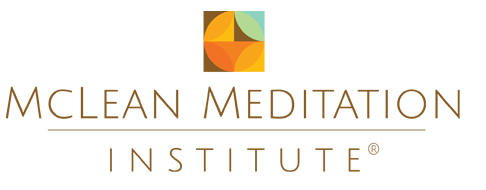Prayer and Meditation
Prayer and Meditation
I wasn’t brought up in a very religious fashion but was familiar with prayer. My mother, who grew up Catholic and went to Mass every Sunday as a girl, now lights candles and says prayers at the chapel in the mall. Her mother would start every day with a cigarette and say the rosary along with the Cardinal on the radio.
My father grew up Methodist and his mother was the church organist and choir director. As I was growing up, I’d accompany him some Sundays to every Protestant church within an hour’s drive as he sought after an inspiring minister.
My prayer practice probably started out with the short prayers like, “Help Me,” or “Help them,” or “Thank you,” and maybe I begged for favors, and made deals with God if things would go a certain way. I occasionally said grace when we ate with our grandparents.
As a meditation teacher with a formal meditation practice, praying has truly evolved for me. Meditation hasn’t lessened my need for prayer; in fact, it’s actually made prayer more important. It is a key component to my communion with the divine.
A couple of years ago, I began the practice of praying before I meditate. With eyes closed, I settle my awareness in my heart, or in the center of my chest. Sometimes I say a prayer of thanksgiving or ask for something, other times I pray for insight into a situation or for the relief of the suffering of others. The prayer I find the most peaceful is “Thy will be done.” And the prayer I say most often, as I sit with my eyes closed, is “Come to me”, beckoning the divine to come to my heart. The more I meditate, the more I want to experience God directly. Then I let the prayer go and begin my meditation.
Have you ever heard the saying, “Prayer is talking to God and meditation is listening”? I loved it the first time I heard it years ago, but the more I meditate, the more I feel the saying isn’t quite right. Yes, prayer is talking to God. But the meditation I do doesn’t really involve an active listening.
My daily meditation practice is best described as a way to relieve the build-up of stress in my mind and body. I don’t have an extraordinarily stressful life, but my busy work schedule, impurities in the environment, and ideological conflicts can cause stress. Sometimes my stress is caused by not completely digesting my food, not getting a good night’s sleep, ignoring the wisdom of my body, or not feeling my emotions when they come up.
Stress creates physical impacts, but it can also trigger reactionary emotional or mental responses. It can change our perception and limits the ability to see possibilities in each moment. Stress can also dim our experience of the sweetness of life and can get in the way of inner peace.
Meditation helps to dissolve the stress layer that can build up if not dealt with. In meditation, the nervous system settles down, and this allows the release of stress and impurities. We can become more attuned to subtleties or and our sensitivity increases. Sensitivity and silence are important benefits of meditation and help us to be better listeners.
The poet William Blake wrote, “If the doors of perception were cleansed everything would appear to man as it is, infinite. For man has closed himself up and sees all things through narrow chinks of his cavern.”
Sages who meditated daily in ancient times (and even some today) had very refined nervous systems. Meditation made it easy for them to tune into their intuitive intelligence. The Sanskrit term for this is buddhi, a word that describes our true wisdom – inner wisdom that is distinguished from the mind, intellect, and ego.
These days the common word for this inner wisdom is intuition, a word derived from the Latin intuitio which means seeing within. Intuition isn’t always about seeing with your mind’s eye; some people listen to their internal wisdom – they hear a whisper or a shout. And there are others who feel a physical response to a question or a choice. Whether you use it or not, you have it. Everyone does.
So yes, prayer is talking to the divine. But my experience is that meditation is purifying and refining my nervous system, and so as I walk through the world, I am more sensitive and have a greater sense of peace. When we each walk in this way, we can more easily attune to the wise whispers of our soul or those of the divine. We turn down the noise so we can listen to God.





